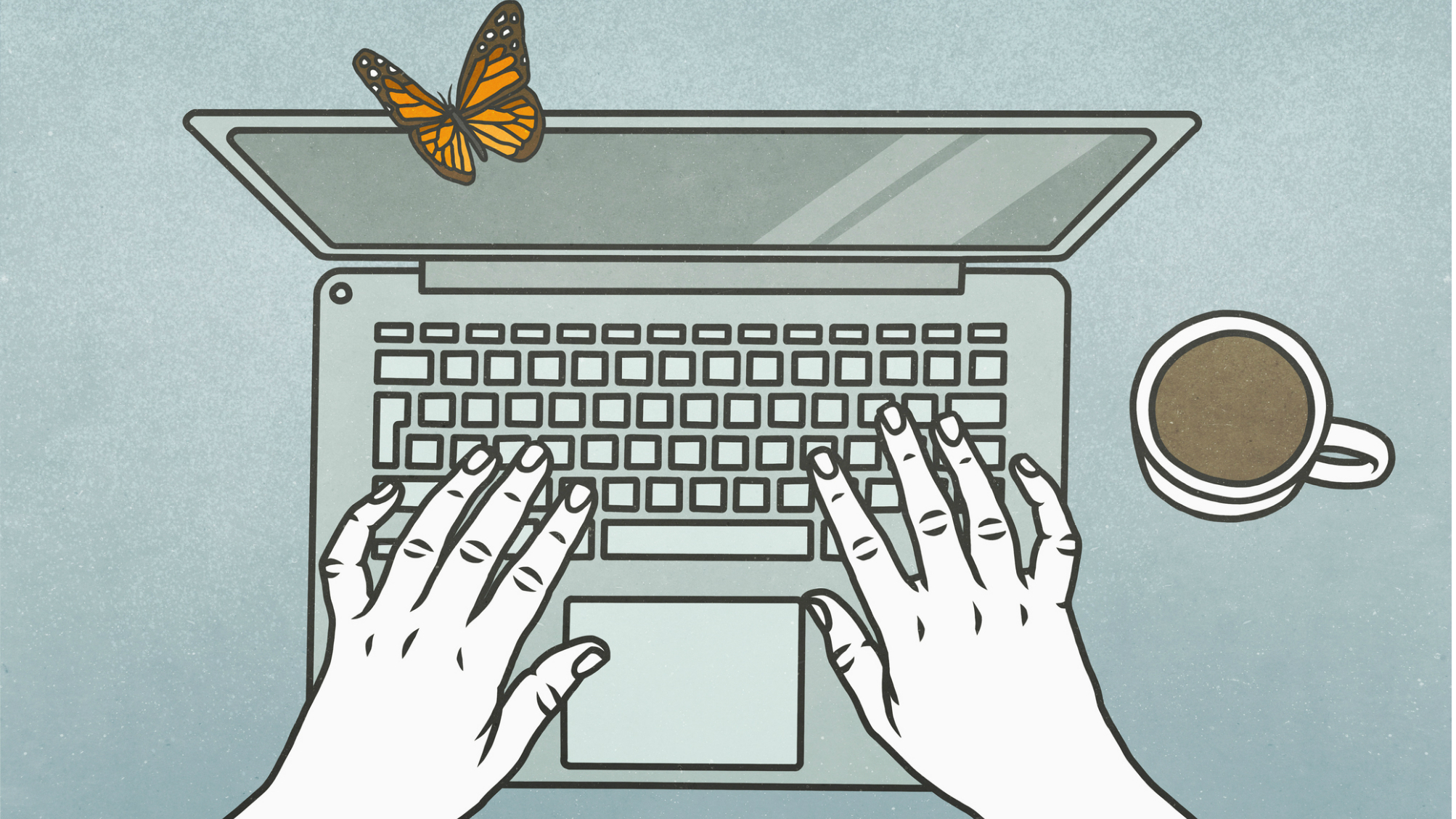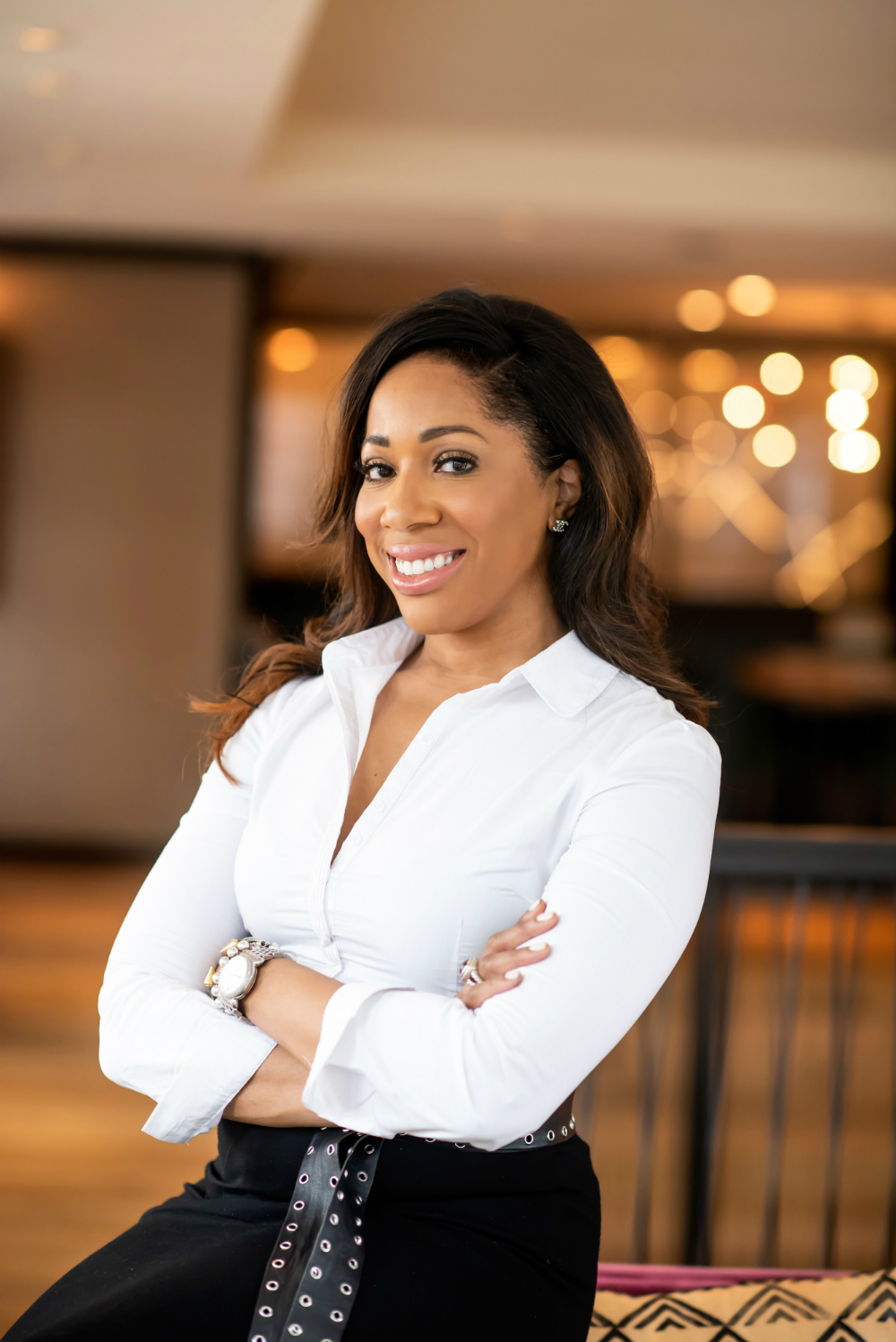Expert-approved ways to be a WFH high performer and impress your boss every day
Because it's hard to shine when no one can actually see what you're doing. Success strategist Arika Pierce opens up her WFH rulebook


Celebrity news, beauty, fashion advice, and fascinating features, delivered straight to your inbox!
You are now subscribed
Your newsletter sign-up was successful
Because it's hard to shine when no one can actually see what you're doing. Success strategist Arika Pierce opens up her WFH rulebook
Right now this work-from-home experience coupled with depressing headlines about an uncertain economy is leaving a lot of us wondering what this will mean for our jobs, let alone the trajectory of our careers.
If you’re worried about your career right now, don’t feel guilty even if there are more pressing problems around the world. It’s actually incredibly common - and valid - career concerns are one of the most commonly asked questions I’ve received over the last few weeks, and everyone is asking the same thing, 'How do I stay on track professionally?
I believe that, while these are uncertain times, now is actually an excellent opportunity for many young leaders to show up and shine at work, so if you want to be an extraordinary virtual employee, here are a few ways to make that happen.
1. High performers reset their 2020 goals
Some people are throwing in the towel when it comes to this year, and they’ve already started pivoting their focus toward 2021. But while the first few months of this year are off to an unplanned start, there are still over 200 days left in 2020 - meaning there’s plenty of time to end the year strong.
Many of us have likely had professional goals set by you and/or your boss for this year, and right now is the perfect time to review these goals, reset, and re-energise.
Take a look at all of your goals, and - instead of lowering them - make changes to ensure the objective of the goal is still executed even if the tactics may have to change.
Celebrity news, beauty, fashion advice, and fascinating features, delivered straight to your inbox!
If you haven’t set any professional goals for this year, now is the perfect time to do so. Focus on the next 12 weeks, and create 2-3 key goals that you would like to accomplish, as well as the action steps required to get you there. Don’t be afraid to start small and build your momentum as you progress.
2. High performers tend to over-communicate
If this is your first time working from home, lean toward over-communication. This is the time to show that you still take your job very seriously and are doing your part to ensure that your organisations’ business operations continue at a high level of productivity.
Stay in regular communication with key team members, your boss, and other colleagues that you would traditionally interact with. Try to check in once or twice a week with your direct supervisor, and if possible, connect via video conference to visually show your level of professional maturity (that you’re not binge-watching Netflix in your pyjamas on company time).

Remember, if you’re working from home for the first time, there’s a good chance that your boss might be working from home for the first time as well - meaning they’re likely nervous about whether or not things are actually getting done. By going above and beyond, you’ll both soothe their nerves and stand out as an excellent employee.
3. High performers master video meetings
The current pandemic has forced many of us to operate outside of our comfort zones. As a result, many in-person meetings and presentations have transitioned to Zoom and other video/phone conferencing formats, which isn’t always easy - especially since it can be difficult to read the energy of the room.
Now is the time to sharpen your skills and focus on becoming a powerful video conference presenter. Get comfortable having your camera on, work on creating presentations that are focused and engaging even for remote audiences, rehearse and record yourself (and get feedback from others), and learn how to stay in control while facilitating virtual meetings.
4. High performers go above and beyond to be helpful
One of the best ways to be an extraordinary leader during these unique times is through service, which should also include the organisation you work for. Maybe you can offer to be a virtual mentor to a junior employee, brainstorm new services or products that your company can provide to help your customers or clients during a difficult time, or simply introduce a weekly virtual ‘happy hour’ to keep people connected while working remote.
Don’t be afraid to think outside the box! If you’re a yoga instructor after your day job, maybe you could offer 15-minute virtual chair yoga classes to encourage movement and stress relief for colleagues.
If you want to be known for stepping up at work during a difficult time, start by cultivating a reputation for positive action. People will recognise and remember those who are willing to go above and beyond. And providing solutions instead of complaints will help you elevate your professional brand and make a lasting impact on your career for years to come.
* Arika Pierce is the author of The Millennial’s Playbook to Adulting, and host of The Millennial Boardroom Podcast. She's an expert in helping Millennial and Gen-Z leaders succeed in business, leadership, and life
Maria Coole is a contributing editor on Marie Claire.
Hello Marie Claire readers – you have reached your daily destination. I really hope you’re enjoying our reads and I'm very interested to know what you shared, liked and didn’t like (gah, it happens) by emailing me at: maria.coole@freelance.ti-media.com
But if you fancy finding out who you’re venting to then let me tell you I’m the one on the team that remembers the Spice Girls the first time round. I confidently predicted they’d be a one-hit wonder in the pages of Bliss magazine where I was deputy editor through the second half of the 90s. Having soundly killed any career ambitions in music journalism I’ve managed to keep myself in glow-boosting moisturisers and theatre tickets with a centuries-spanning career in journalism.
Yes, predating t’internet, when 'I’ll fax you' was grunted down a phone with a cord attached to it; when Glastonbury was still accessible by casually going under or over a flimsy fence; when gatecrashing a Foo Fighters aftershow party was easy-peasy-lemon-squeezy and tapping Dave Grohl on the shoulder was... oh sorry I like to ramble.
Originally born and bred in that there Welsh seaside town kindly given a new lease of life by Gavin & Stacey, I started out as a junior writer for the Girl Guides and eventually earned enough Brownie points to move on and have a blast as deputy editor of Bliss, New Woman and editor of People newspaper magazine. I was on the launch team of Look in 2007 - where I stuck around as deputy editor and acting editor for almost ten years - shaping a magazine and website at the forefront of body positivity, mental wellbeing and empowering features. More recently, I’ve been Closer executive editor, assistant editor at the Financial Times’s How To Spend It (yes thanks, no probs with that life skill) and now I’m making my inner fangirl’s dream come true by working on this agenda-setting brand, the one that inspired me to become a journalist when Marie Claire launched back in 1988.
I’m a theatre addict, lover of Marvel franchises, most hard cheeses, all types of trees, half-price Itsu, cats, Dr Who, cherry tomatoes, Curly-Wurly, cats, blueberries, cats, boiled eggs, cats, maxi dresses, cats, Adidas shelltops, cats and their kittens. I’ve never knowingly operated any household white goods and once served Ripples as a main course. And finally, always remember what the late great Nora Ephron said, ‘Everything is copy.’
